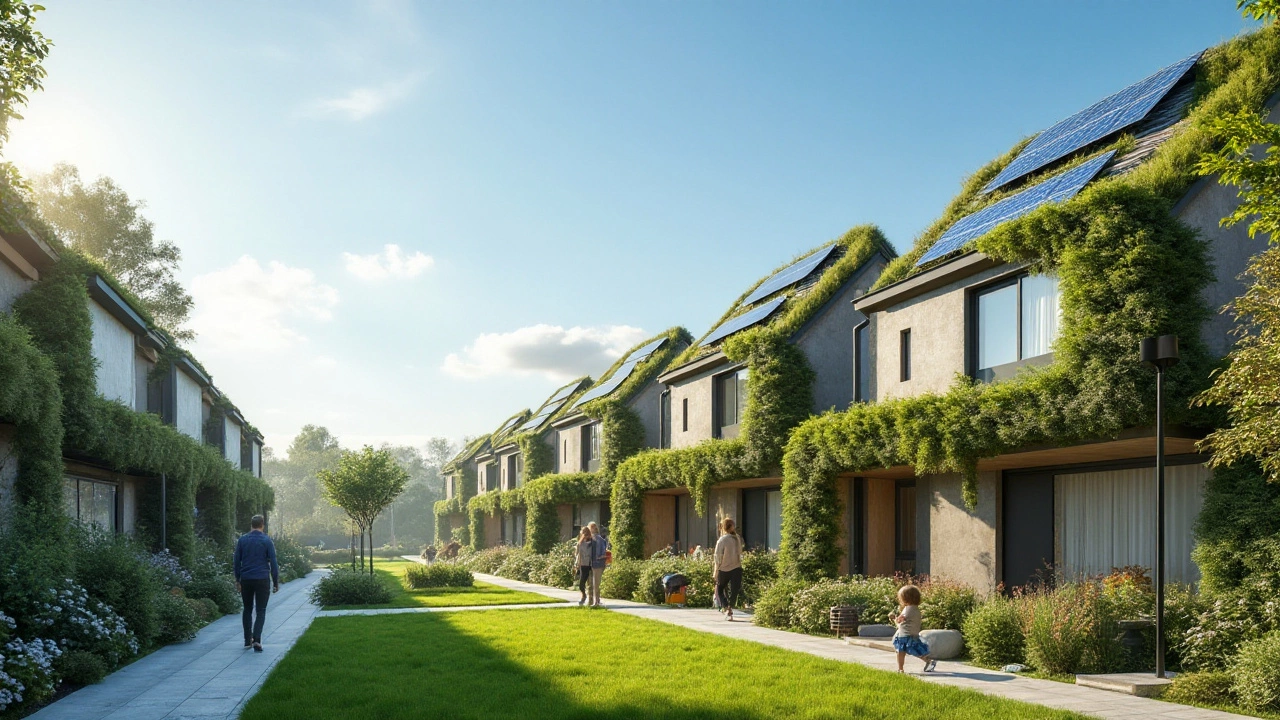Sustainable Architecture: What It Means and Why It Matters Near Peterborough Arena
If you’re planning a trip to the Peterborough Arena, you probably want a place to stay that feels good for the planet as well as your wallet. Sustainable architecture isn’t just a buzzword – it’s about using design, materials, and technology to cut energy use, reduce waste, and keep indoor air clean. In simple terms, a sustainable building tries to do the same job as a regular building but with less impact on nature.
Why should you care? A greener building can mean lower heating bills, better insulation, and a quieter, healthier space to relax after an event. For travelers, that translates into a more comfortable night’s sleep and a smaller carbon footprint for the whole trip.
Key Principles of Sustainable Architecture
First, look for materials that are locally sourced or recycled. Wood from nearby forests, reclaimed bricks, or recycled metal all require less transport energy. Second, pay attention to energy systems. Buildings with solar panels, heat‑recovery ventilation, or high‑efficiency lighting use far less power than ones that rely on old‑fashioned fixtures.
Third, insulation and airtightness are huge game‑changers. Proper insulation keeps warmth in during winter and heat out during summer, which means the heating and cooling systems don’t have to work overtime. Finally, consider water management – low‑flow taps, rain‑water harvesting, and grey‑water recycling all help cut down on water waste.
How to Spot Green Buildings Near Peterborough Arena
When you browse hotels or cottages, check the description for keywords like "eco‑friendly," "green certified," or "energy efficient." Many properties proudly display certifications such as BREEAM, Green Star, or Passivhaus – those are reliable signs of sustainable design.
Another clue is the amenities list. If a place mentions solar power, LED lighting, or a composting system, it’s likely following sustainable practices. Look for on‑site recycling bins, bike rentals, or electric‑car charging stations – these small touches show the owners care about the environment.Don’t forget to read guest reviews. Travelers often comment on the comfort of the rooms, the quality of the air, and how quiet the building feels. Positive feedback about energy savings or low utility bills usually points to good insulation and efficient systems.
Finally, call the property if you’re unsure. A quick question about their sustainability initiatives can give you a clear picture and also lets the staff know you value green practices.
Choosing a sustainable place to stay near the Peterborough Arena doesn’t have to be hard. Keep an eye on the material choices, energy features, and certifications, and you’ll end up in a comfortable spot that respects the planet. Plus, you’ll feel good knowing your night’s rest helped cut down on waste and emissions. Happy travels and enjoy the event!
Exploring the Drawbacks of Eco-Friendly Cottages
Green buildings promise minimized environmental impact and enhanced energy efficiency, yet they are not free from challenges. Homeowners often face significant upfront costs and maintenance concerns over time. There's also the issue of the potential for underperformance in energy savings. Additionally, certain materials may not have the expected durability, causing unexpected complications. Evaluating these aspects is crucial for prospective builders and buyers.
